
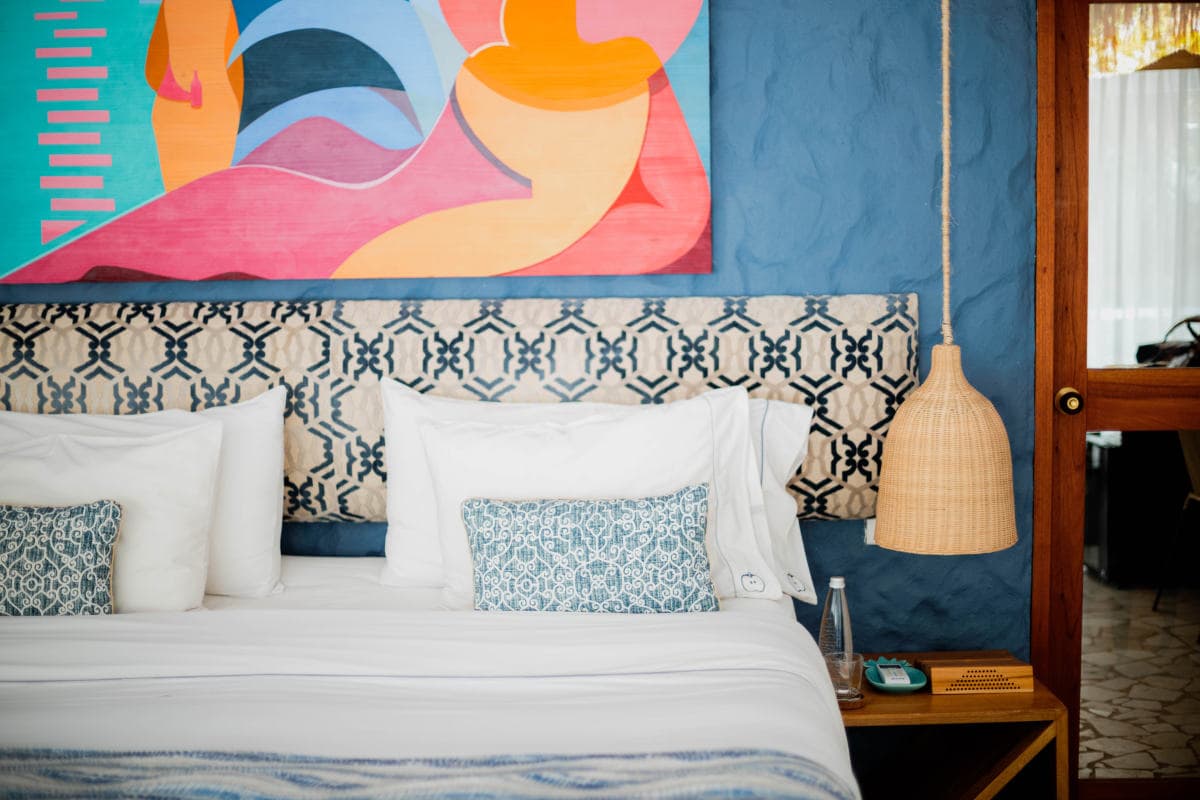


Images courtesy of Blue Apple Beach
Imagine a career amidst a world of yachts, glamor, film festivals and luxury. For eight years, in Monaco and the South of France, this glitzy setting was Portia Hart’s world. Portia now owns and runs a chic hotel & beach club in Cartagena, which she founded in 2016.
But this eventual path was not always evident. After graduating from university, in Scotland, she landed a job at a yacht brokerage firm. And though Portia described the experience as amazing, she said she knew she wanted more.
“If I don't make a move now, in 20 years time, I'm going to be telling the same stories about the Grand Prix and the Cannes Film Festival,” she said. “It's all kind of fabulous. But also, I just had this strong awareness that it was not the real world.”
Making a move
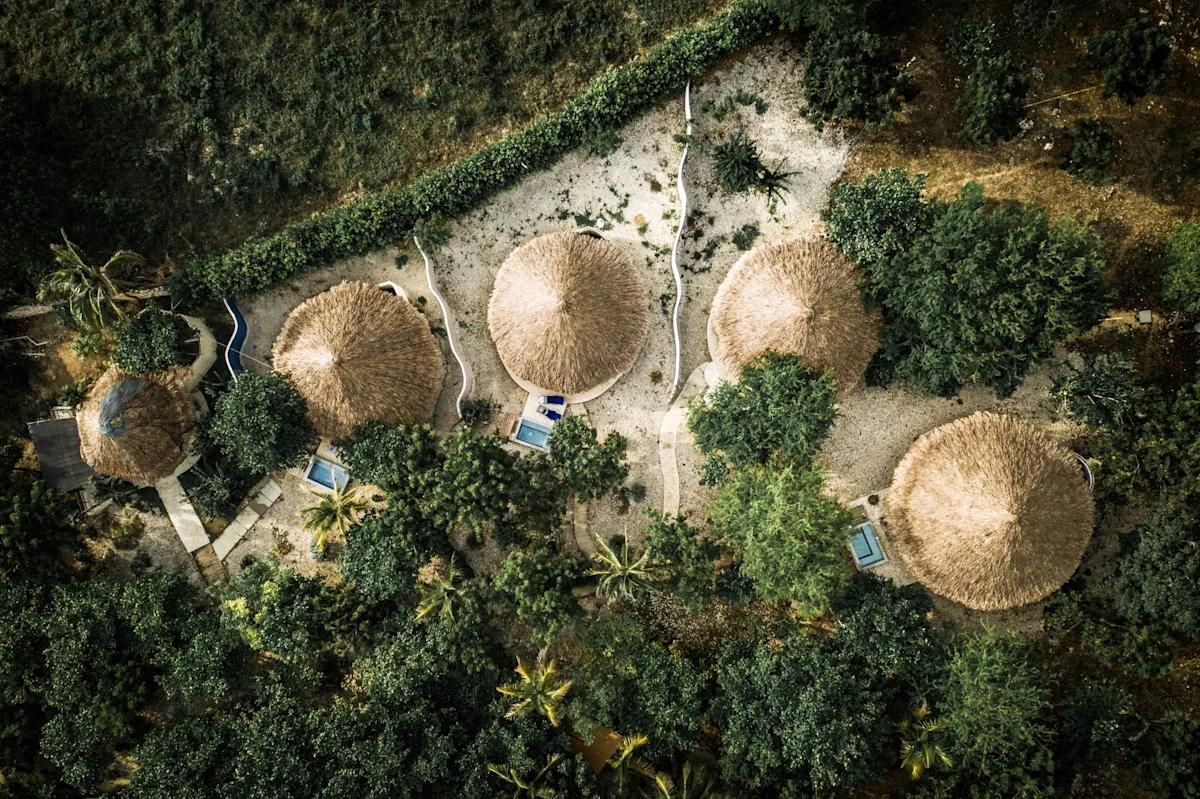
Image courtesy of Blue Apple Beach
When a friend, whose new wife was Colombian, planned to move down there, he invited Portia. Perhaps they could start a business together, he proposed.
“I thought, this is exactly the opportunity I was looking for,” she said.
Portia packed her bags and made the move. The excitement drained, however, when her friend’s wife decided that she did not, in fact, like living in Colombia. The couple moved back to the UK. Portia stayed in South America. She had quit her job, had thrown a going away party. It was too late to go back.
“If nothing else, at the end of this year, I'll have learned Spanish,” she explained.
Now alone in this foreign country, Portia explored Cartagena, a historic city on Colombia’s Caribbean coast. But she said she still felt something was missing.
Identifying a need, and filling the gap
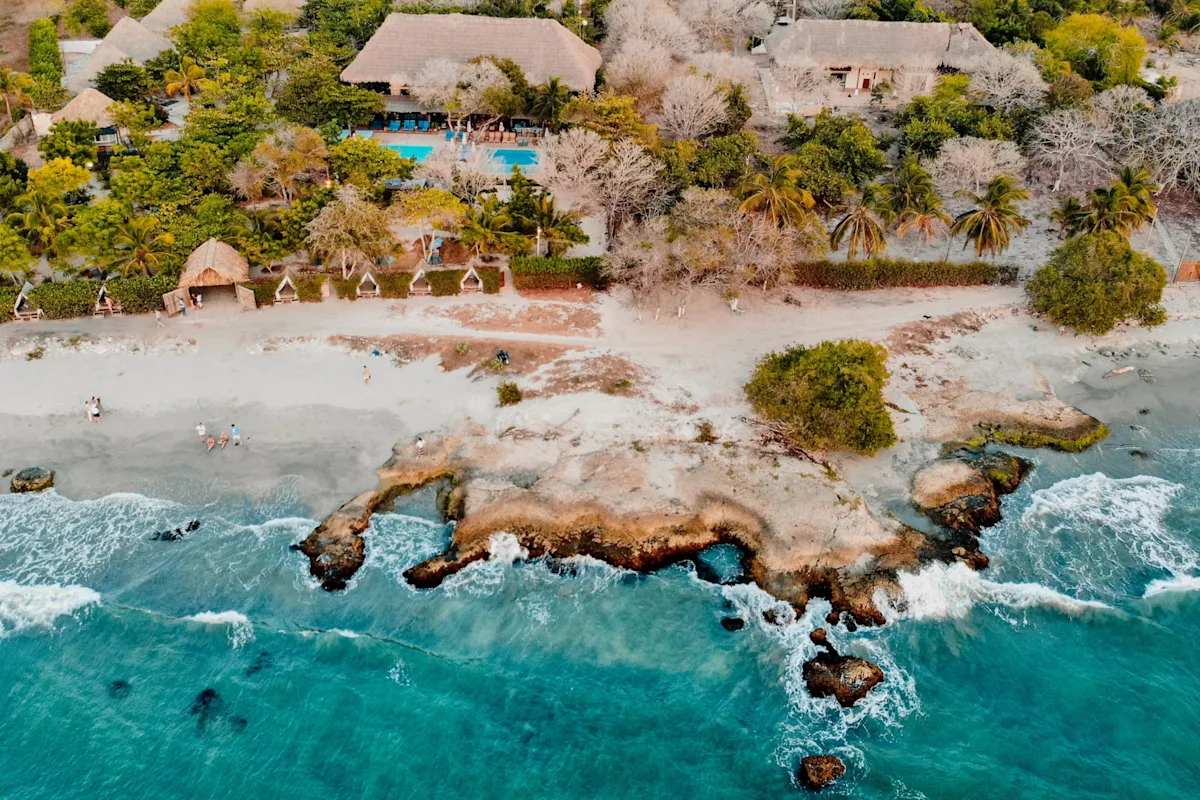
Image courtesy of Blue Apple Beach
“I simply couldn't find a decent beach club,” Portia said. “You've got five-star hotels, you've got fantastic restaurants in the [city]. And as soon as you step out to the beaches, which is where a lot of tourists want to go, everything just falls apart.”
Portia saw a need, and created the solution — Blue Apple Beach, a boutique beach club (and certified B-Corp) just 20 minutes from Cartagena, on the island of Tierra Bomba.
She admits that she “had no idea what I was doing. But I went in with a mantra that I had 10,000 hours of being a customer.” She knew what customers were looking for.
She met a chef, and the head waiter of a top Bogotá restaurant. They managed the kitchen and service, while Portia handled the customers. Eventually, the project grew. Portia said she didn’t intend to run a hotel, which “sounded like absolute madness,” but more people kept asking to spend the night.
"We didn’t even use the word hotel for the first year or so, because I didn’t feel confident at all,” she said.
But Portia said she and her team realized that the hotel was an extension of what they were already doing. She loved her team, which made the progression possible.
“The evolution felt really natural,” she said.
Designing a place where she wanted to be
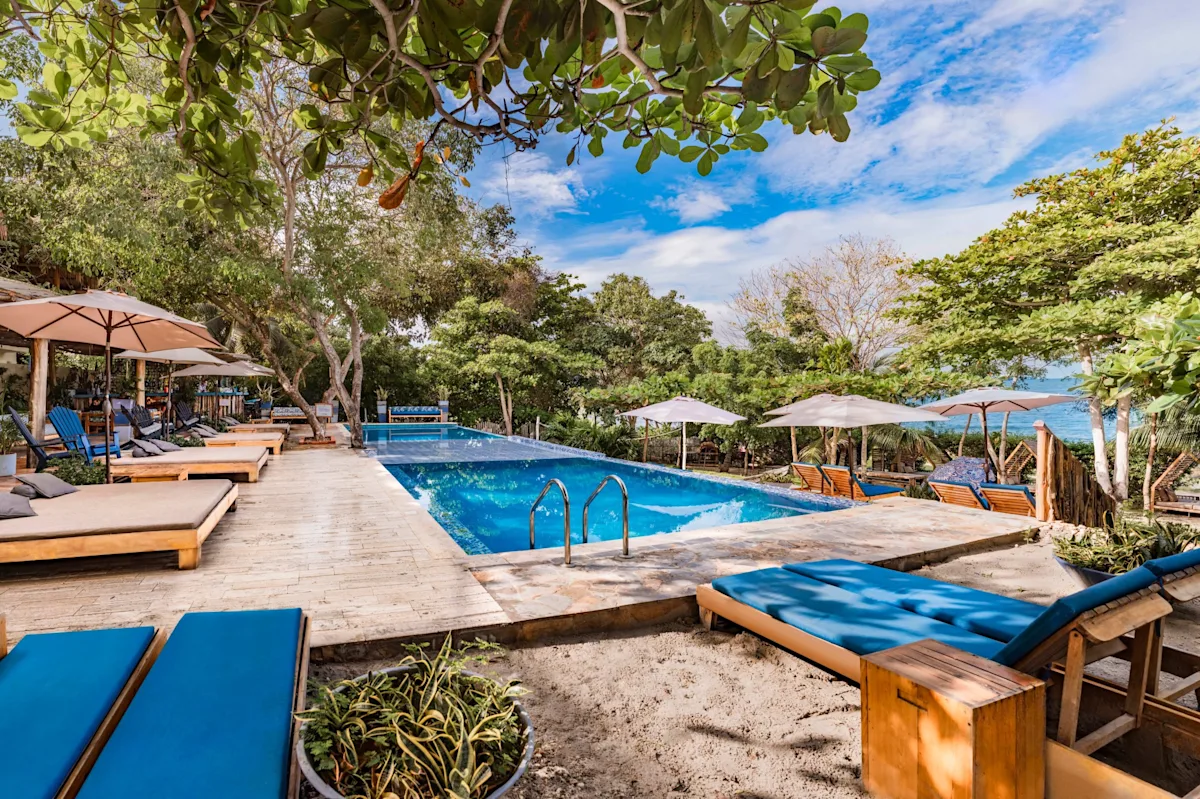
Image courtesy of Blue Apple Beach
Impeccable hospitality was established as Blue Apple Beach’s guiding principle, the foundation on which everything else would be built. It continues to drive its operations today.
“We built places where we wanted to be,” Portia said. “We made a place where our friends would feel comfortable.”
Portia stressed that service is always top of mind. “That has governed the design, that has governed the selection of the menus, that does govern how we plan our event schedules,” she said.
“It's always been very much related to that human community need, like what's missing. If we don't think something is missing, we're not going to do it,” she added.
The 11 well-appointed cabañas and bedrooms at Blue Apple Beach, each named after a tropical fruit (Manzana, Piña, Mamon…), are decorated with the work of local artists and carpenters. Guests can lounge in hand-woven hammocks before cozying into beds covered with natural linens. Some cabañas even boast a private plunge pool.
Blue Apple Beach’s fantastic food program is helmed by the Venezuelan chef Pedro Mosqueda, who has worked at several top restaurants, including the Michelin-starred eateries at The Mark and The Breslin, both in New York City. At Blue Apple Beach, most of the ingredients used in dishes are sourced locally, if not produced onsite. The hotel raises its own chickens, pigs and goats. If it doesn't know where an animal came from, the animal won’t be served. All seafood is responsibly and ethically sourced, and most of the kitchen scraps are either composted or fed to the property’s animals. After enjoying a delicious, meticulously sourced meal, guests can relax by the pool amidst a laid-back, beach club atmosphere. On the weekends, a DJ dials up the energy.
Ready to travel? Connect with Fora to plan and book your stay at Blue Apple Beach for your dream trip to Cartagena.
Creating a home away from home
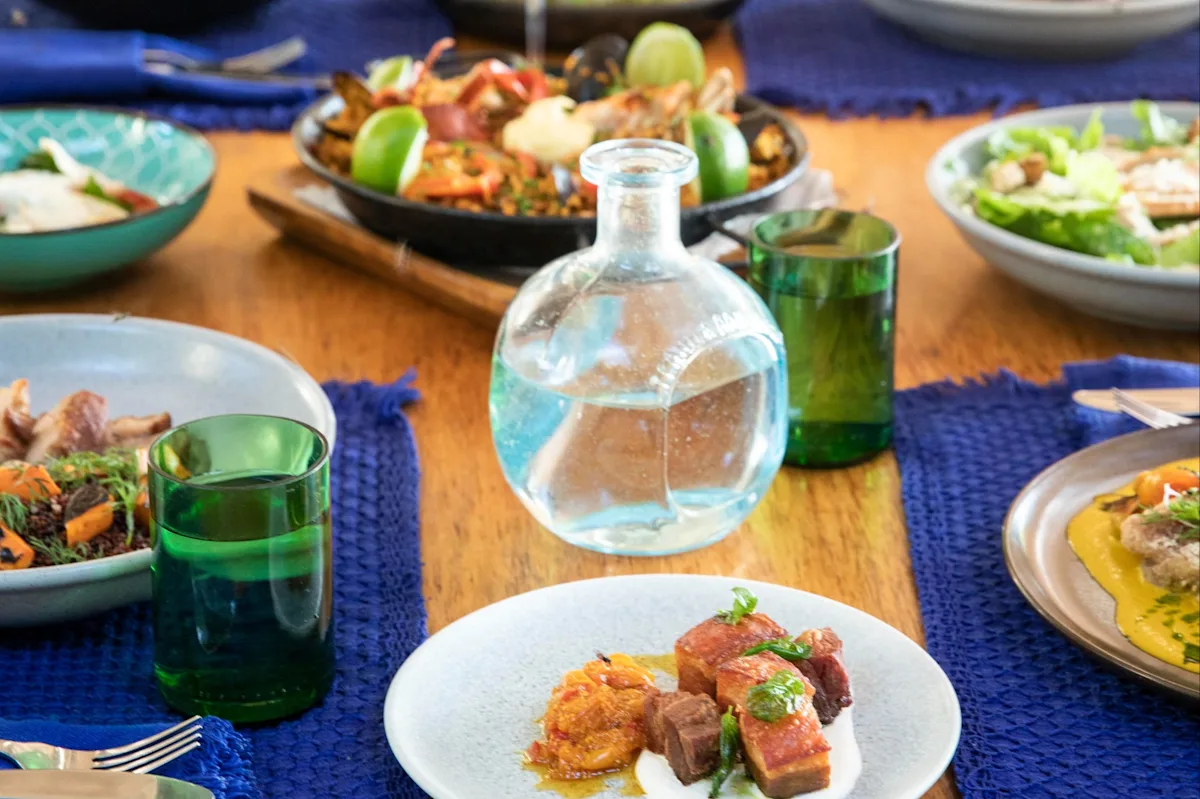
Image courtesy of Blue Apple Beach
The pervasive warmth and positive vibes are maintained primarily through the people who work at Blue Apple Beach, most of whom are locals. Though they may not have extensive experience in the industry, Portia said she believes their lack of formal training is actually ideal: they aren’t beholden to some manual that touts excessive formality, arbitrary rules (serve on the left, clear from the right) and the like.
“You need to take that out and put in hospitality,” she said. And hospitality is “something that you have as a personality trait.”
“Not everyone is built to be a surgeon — not all of us have steady hands,” Portia went on. “Not all of us have the mathematical ability to become astrophysicists. And I think not everyone is born with an innate sense of hospitality. So it's finding those people. And that's more important than training.”
This is precisely what makes Blue Apple Beach so special. In fact, during training, new employees are instructed to regard Blue Apple Beach as their home, and to treat every guest as a welcome visitor.
“If you treat everybody as if they were just in your own home, even if you forget the rules, you'll know that the fundamental thing that you want to do is make them feel comfortable, make them feel wanted, make them feel taken care of,” Portia said.
Cultivating human connection in hospitality and beyond
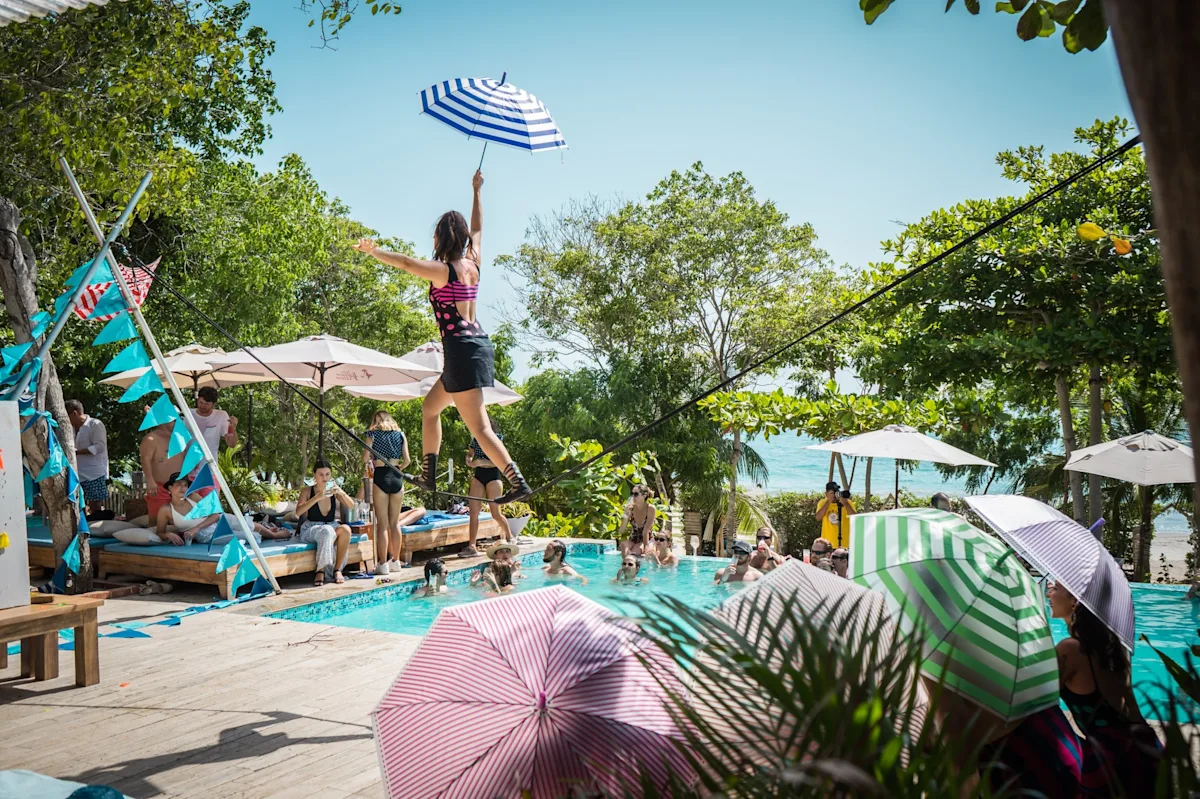
Image courtesy of Blue Apple Beach
This spirit of hospitality is not possible if the employees themselves are not treated with respect. Portia witnessed how poorly treated those in the hospitality industry were, especially in the UK and North America. She cited the pandemic as additional, explicit proof: many people who had worked in the industry opted not to return.
“The people make the businesses,” she said.
This ethos extends beyond Blue Apple Beach. Soon after launching the beach club, she and her partners realized that there was no glass recycling available on Tierra Bomba. Just as she had with Blue Apple Beach, she again had to create the solution, and the Green Apple Foundation was born. This non-profit, independent foundation turns glass bottles into “sand,” which can be used for construction, landscaping and even decor.
A primary goal of the Green Apple Foundation, apart from glass recycling, however, was to create sustainable jobs that paid fair wages. And Green Apple Foundation surpassed its goal.
“Not only have we created jobs, we actually created experts,” Portia said. Green Apple Foundation employees have “become leading experts in our city who know more than I know — they know more than anybody else in town.”
Portia may have launched the Green Apple Foundation, but she’s proud about how it “now has a life of its own, and it's in the hands of people that want to take it further. And it's bettering the community, it's bettering the environment and it's teaching business to people.”
Breaking down walls
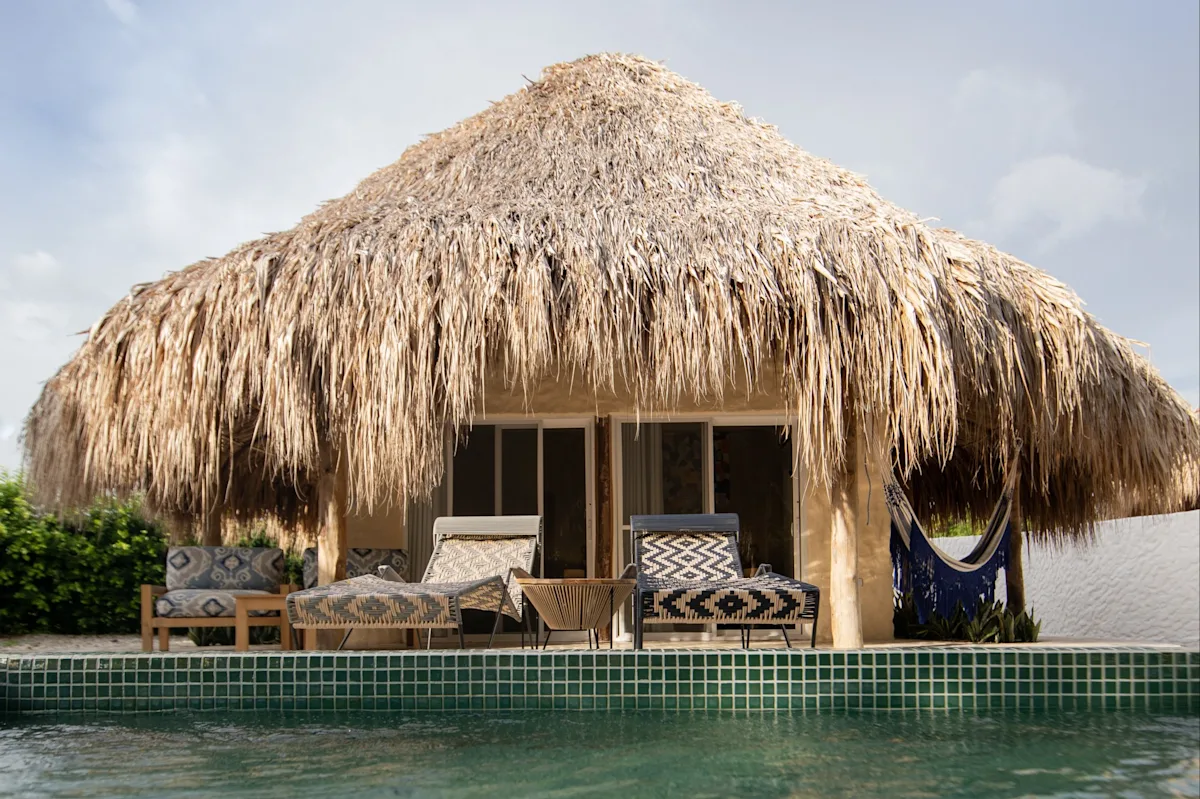
Image courtesy of Blue Apple Beach
All of Portia’s endeavors seem to come back to the people.
“When you speak to most humans, the thing that they love about travel is when they meet somebody who's very different from them, and discover they have something in common,” she said. “And that's what makes you feel, I got out of my bubble, I breathed new air.”
The culture, the food, the art — all of these aspects add so much color to a trip, especially one to Colombia. But Portia said that what really makes a trip special is face-to-face interactions with the people. It’s the human connection that matters.
Historically, human connection in the hospitality industry has not been top of mind. Portia mentioned the hotel in “The White Lotus,” as a prime example of how hotels have traditionally been run. For her, the show, a dark comedy on HBO, illustrates “what happens when you have tourism where there is no real connection with locals.”
She calls this old-fashioned tourism, when resorts put up a wall, creating a rift between what’s local and foreign. The times are changing, however.
“Tourism is now trending in a direction which is about breaking down those divides,” Portia said. By all accounts, she is among those working to break down those walls.
She said she has seen “a whole generation of girls, people of color, people of different abilities…who think that this world isn't for them. And hospitality is so cool because of course, the more diverse the ownership is in hospitality, the more hospitality works to serve a diverse world.”
Ready to travel? Connect with Fora to plan and book your stay at Blue Apple Beach for your dream trip to Cartagena.
